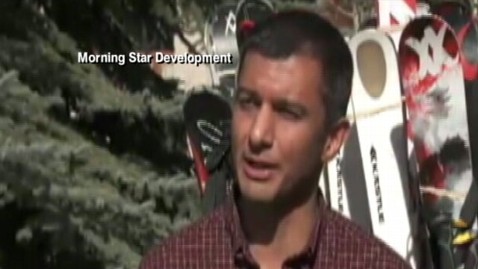The two Australian radio DJs who prank-called the London hospital where Kate Middleton was being treated last week said they were "shattered" and "gutted" after the nurse who answered their call apparently killed herself.
Shock jocks Mel Greig, 30, and Michael Christian, 25, cried as they spoke to Australia's Channel 9 overnight in their first public interview since Jacintha Saldanha, 46, the nurse who last week connected the pair to the duchess' room, was found dead Friday morning.
"I'm shattered, gutted, heartbroken," Christian said. "Mel and myself are incredibly sorry for the situation and what's happened. I had the idea. … It was just a simple harmless phone call. It was going to go on for 30 seconds. We were going to get hung up on."
FULL COVERAGE: Royal Baby
The host of the "2Day" FM radio show pretended to be Queen Elizabeth and Prince Charles, asking for an update on Middleton's condition when they called up King Edward VII Hospital in central London. With no receptionist on duty overnight, Saldanha answered the prank call and put it through.
"It was just something that was fun and light-hearted and a tragic turn of events that I don't think anyone had expected," Christian said.
A Current Affair/ABC News
Jacintha Saldanha Dead: Could DJs Face Charges? Watch Video
Jacintha Saldanha Outrage: DJs Responsible for Prank Are in Hiding Watch Video
Saldanha was found dead Friday morning after police were called to an address near the hospital to "reports of a woman found unconscious," according to a statement from Scotland Yard.
Investigators have not said how she might have killed herself.
Greig cried today when asked about the moment she heard of the death of Saldanha, a mother of two.
"It was the worst phone call I've ever had in my life," she said through tears. "There's not a minute that goes by that we don't think about her family and the thought that we may have played a part in that is gut-wrenching."
The DJs said they never expected to get through to Middleton's nurse and assumed "the same phone calls had been made 100 times that morning," Christian said.
Grieg said, "We wanted to be hung up on with our silly voices and wanted a 20-second segment to air of us doing stupid voice. … Not for a second did we expect to even speak to Kate or even have a conversation with anyone at the hospital. We wanted to be hung up on."
The global backlash against the duo has been fierce, from online death threats to calls for prison time. Their radio station has announced it is banning phony phone calls altogether, and suspending advertising indefinitely.
Max Moore-Wilton, the chairman of Southern Cross Austereo, said in a letter Sunday to Lord Glenarthur, chairman of King Edward VII's Hospital, that the company is reviewing the station's broadcast policies, the AP reported.
"I can assure you we are taking immediate action and reviewing the broadcast and processes involved," Moore-Wilton said in the letter. "As we have said in our own statements on the matter, the outcome was unforeseeable and very regrettable."
Greig and Michael have been taken off the air, silenced indefinitely.










